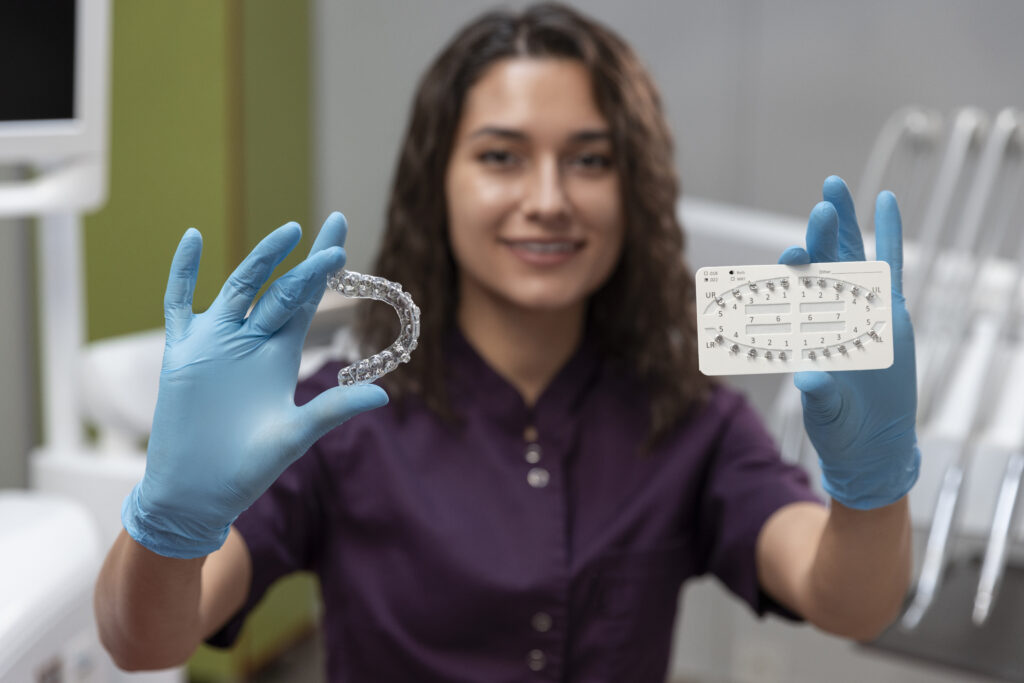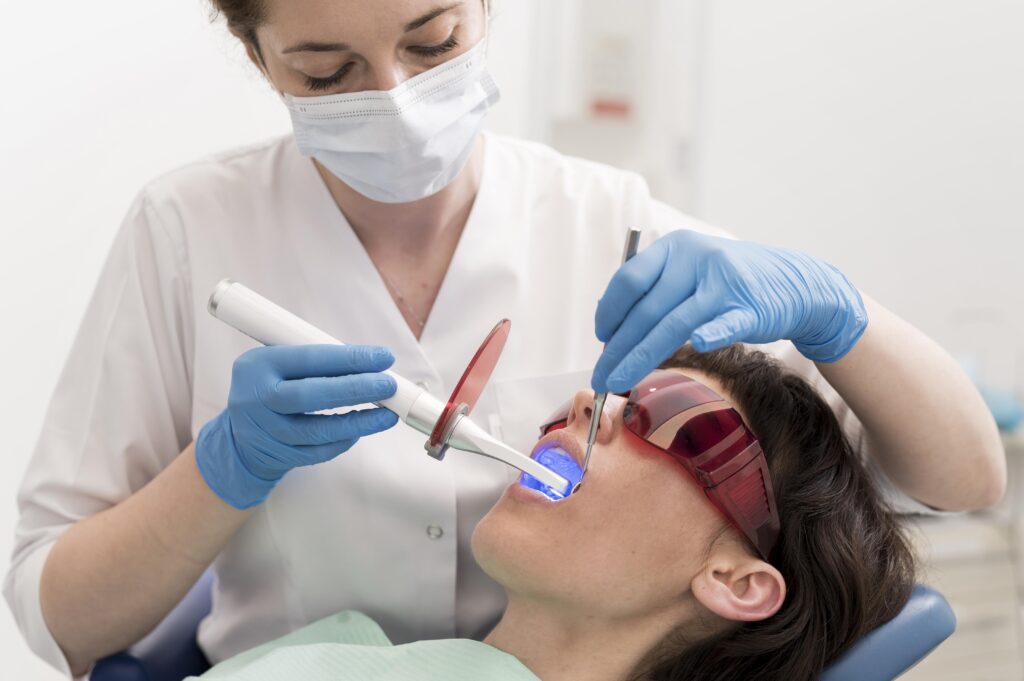Key Takeaways
- Gum Disease Affects Your Heart: Inflammation from gums can enter the bloodstream, raising risks of artery inflammation, high blood pressure, heart attack, or stroke.
- Early Signs Are Subtle: Watch for bleeding gums, redness, swelling, bad breath, gum recession, or loose teeth, early detection makes treatment easier.
- Daily Oral Care is Crucial: Brush your teeth in the morning and at night. Floss every day and go to the dentist for cleanings to keep your teeth healthy.
Gum disease can affect your heart. Seriously. The inflammation in your gums can get into your bloodstream and put stress on your cardiovascular system. But here’s the thing: You can do a lot to lower that risk just by taking care of your mouth.
At Puri Dentistry, we talk to adults who brush and floss (sometimes) but ignore the gums. Gums are sneaky. They don’t always hurt until it’s serious. And once gum disease sets in, it’s not just your teeth at risk; it’s your heart, too.
What’s the Connection?
You might be thinking: “My gums? My heart?” Yes. Plaque builds up along your gumline. If it sits there long enough, inflammation starts. That’s when bacteria and inflammatory chemicals can drift into your blood.
Here’s what it can do:
- Make the arteries inflamed (harder for blood to flow).
- Increase the chance of a heart attack or stroke.
- It raises blood pressure in some adults.
Not everyone with gum disease will have heart problems. But it’s one of those risks you can actually control, which is why it matters.
Watch for the Signs
Gum disease doesn’t always scream. Sometimes it whispers:
- Bleeding when brushing or flossing
- Red, swollen gums
- Persistent bad breath
- Teeth that look longer because the gums recede
- Loose teeth or changes in how your bite feels
Even small changes? Don’t ignore them. Treating gum disease early is way easier than waiting for a bigger problem.
How to Protect Your Gums
You don’t need a fancy routine. Realistically, here’s what works:
- Brush twice a day. Really brush. Two minutes. Not one.
- Floss. Every day. Yes, I know you forget sometimes. But it matters.
- See a dentist for cleanings. Professionals get rid of stuff you can’t at home.
- Eat better. More veggies, fruits, lean proteins. Less candy and sticky snacks.
- Don’t smoke or vape. It makes gum disease worse.
- Watch your overall health, blood pressure, diabetes, and cholesterol. They all mix with gum disease.
Even small changes now can prevent serious issues later. And yes, your heart benefits too.
What Happens at a Gum Checkup
When you come in, we check your gums in detail:
- Measure pockets around your teeth
- Look for redness or bleeding
- X-rays if needed
- Ask about your heart and general health
Most gum problems can be handled with a deep cleaning and home care if caught early. Surgery? Only in extreme cases.
Everyday Habits That Help
Life in Oxnard is busy, we get it. Work, errands, maybe hitting the beach on weekends.
- Move your body, walk or bike: Good circulation is important.
- Keep stress low: Long-lasting stress can lead to inflammation.
- Limit how much alcohol you drink: It can make gum problems worse.
- Stay hydrated: Drinking water keeps your mouth clean.
Even doing a few things consistently beats doing nothing.
Why Gums Matter
Your mouth shows your overall health. Untreated gum disease isn’t just a dental issue; it may affect your heart. Oxnard adults who catch problems early have smoother dental care, fewer emergencies, and a lower risk for heart issues.
Final Thoughts
Gum disease is more than just bleeding gums; it can affect your overall health, including your heart. Regular brushing, flossing, dental cleanings, and good lifestyle choices are important for your oral health.
At Puri Dentistry, we help people in Oxnard catch gum disease early and maintain good oral health. Don’t wait until you feel worse. Taking a simple step today, like getting a cleaning or a checkup, can protect your smile and your heart.




